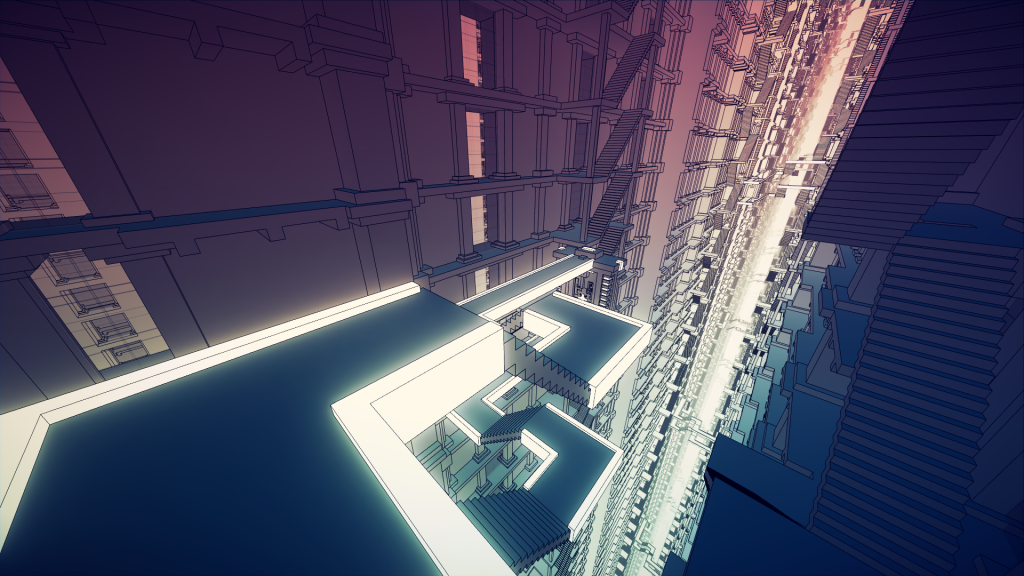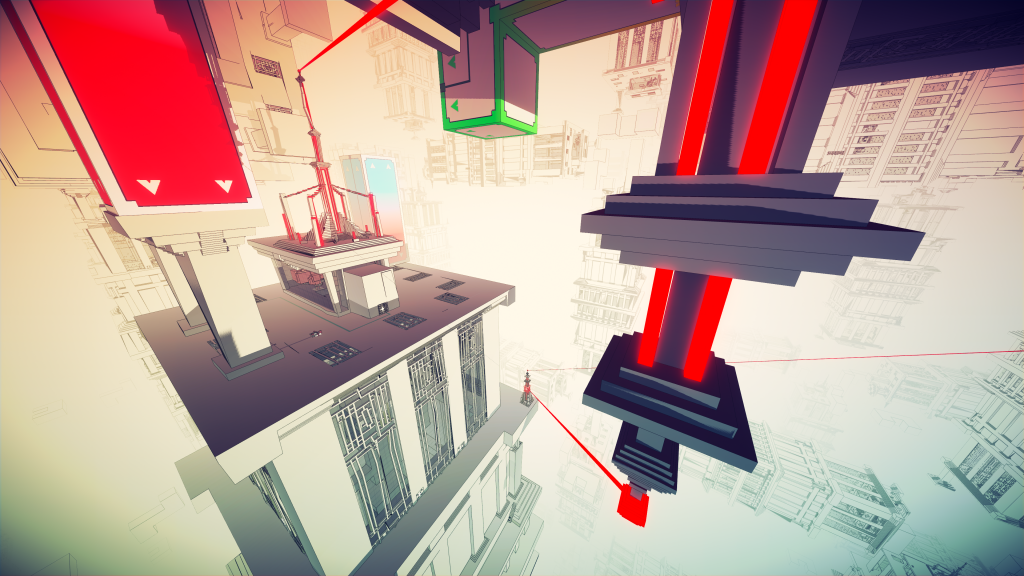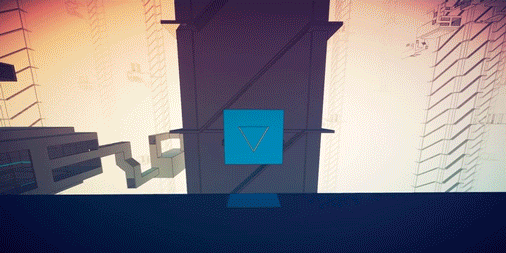I was able to make it over to to the Manifold Garden booth in the IndieCade at E3, check out the game, and ask creator William Chyr about development and his transition into a new artistic medium. I discovered a mind bending game and a creator who is committed to fine tuning his game to perfection.
William Chyr started development on Manifold Garden back in 2012. An artist from Chicago, William wanted to expand his scope and stretch his vision. Videogames seemed like a good way to do that so he started with the intent of wrapping up development fairly quickly. We both had a good laugh once he shared this.
William quickly followed this up, saying with a laugh, “My ego has died a slow death.” I loved this statement. Ego is a strong director of the self. Going through that experience gives your mind, heart and work a freshness and vitality that’s hard to fake.

When I first jumped into Manifold Garden, I thought of The Witness. Both are first person puzzlers and stretch your mind in surprising ways but the similarities end there. William’s background is in physics and how he plays with concepts in Manifold Garden gives your brain a workout. With a world largely inspired by M.C. Escher and taking place in one continuous level, gameplay is largely self guided.
A good portion of the gameplay I explored took place within a series of interconnected rooms with switches and blocks that needed to be moved onto pedestals. I instinctively knew what needed to be done, but the challenge came in determining how to do it. Every surface can be manipulated, whether floor, ceiling, or wall, by walking up to it and “turning” the room so that your feet are firmly on that new surface. Doing this, you quickly find that items on one surface quickly adopt the physics properties you had while on that same surface. If you find a block on one surface, and rotate the room, the properties of that block are tied to the surface it’s on, meaning it will stay planted on its surface and not fall as you would expect. This simple principle is played within what seems almost limitless. Finally working my way through the rooms, I arrive outside. Things get even more involved.

As soon as I got outside, I felt like my mind was working overtime. Always a plus for a puzzle game! William gently nudged me in the right direction, showing me how the universe works. If you walk off the edge, you will keep falling and eventually notice that the world is on repeat. This allowed me to move a block I needed to a platform well out of range.
Typing all this up, I am beginning to understand how difficult this is to explain and that is how I felt as I was playing. I have genuinely not played anything quite like it. The way the world folds in on itself is mesmerizing and anyone who likes a good puzzler is familiar with the trance you fall into as your mind is forced to think in ways that are foreign.

Having read about the similarities to M.C. Escher, I wanted to know what else inspired William. He mentioned the 2010 movie, Inception, pretty quickly. Specifically, the city bending scene. In it, Ellen Page’s character is learning how to craft a a dream space and she asks, “What happens when you start messing with the physics of it all?” Following this we watch a city fold over on itself, while the laws of physics are “attached” to each road or surface individually. Knowing that William drew inspiration from Inception gives me raised my excitement for how Manifold Garden will unfold.
The road to Manifold Garden has been long. All the while, William and his team have been making progress. Game development is a difficult practice, and Manifold Garden is an ambitious, thoughtful game. William Chyr Studio’s premiere, I am so glad they are perfecting their vision. I am looking forward to a tricky, meditative experience when it’s finished.
William Chyr Studio is aiming for a release date for Manifold Garden of Fall 2019.



